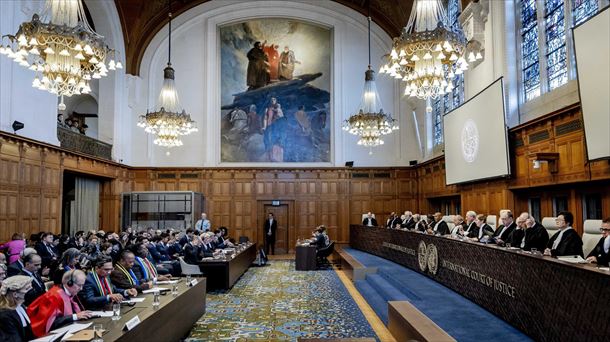The US government has called on Israel to improve the humanitarian situation in the Gaza Strip. Otherwise there is a risk of possible cuts in military aid. The Israeli government has now reported transporting relief supplies to the area in 50 trucks.
In a letter to the government in Jerusalem, US Secretary of State Antony Blinken and Defense Secretary Lloyd Austin expressed “deep concern” about the humanitarian situation in Gaza and called for “urgent and sustained action” from the Israeli government . According to the letter, the volume of aid deliveries has fallen by more than 50 percent since the spring.
In this context, possible violations of US arms export laws are highlighted. This includes the so-called ‘Leahy’ law. It prohibits the US from providing military assistance to forces involved in serious human rights violations. The critics point to doubts whether Israel will meet this demand. According to human rights organizations, basic human rights standards are being violated by the blockade of aid deliveries, airstrikes on residential areas and the lack of protection for civilians in the Gaza Strip.
Israel rejects these accusations and insists that its operations comply with international law. It is not “about any threats,” State Department spokesman Matthew Miller said on Tuesday, but about “results” for the civilian population in the Gaza Strip. Washington has now given Israel a 30-day deadline.
On Wednesday, the head of the United Nations Relief and Works Agency for Palestine Refugees in the Near East (UNRWA), Philippe Lazzarini, also warned of famine ahead of the approaching winter. “Unfortunately, hunger and malnutrition are very likely,” Lazzarini said at a news conference in Berlin. Hunger in the Palestinian coastal strip was “artificial,” Lazzarini said, calling for truck convoys carrying food to pass through border posts into the Gaza Strip.
A short time later, the Israeli government announced that relief supplies would be transported to the area in fifty trucks. These include food, water and medicine, said the Israeli authority responsible for Palestinian affairs, Cogat.
US opposes ‘campaign in Lebanon’
The US government also sharply criticized the Israeli air force’s attacks on targets in the Lebanese capital Beirut. “We have made it clear that we are against the campaign” seen in Beirut in recent weeks, Miller said.
The US is Israel’s most important ally and also its largest arms supplier. The Israeli army has dramatically stepped up its attacks on targets of the pro-Iranian Hezbollah militia in Lebanon since September 23. Initially, the airstrikes mainly targeted Hezbollah strongholds in the south of the country and in the southern suburbs of Beirut. Recently, the army has also attacked targets in the center of the capital, as well as in the north and east of the country.
The double strategy of the Americans
Recently the US had increased its military support. The Defense Ministry said the first components of the THAAD missile defense system and US military personnel arrived in Israel on Monday. The system is intended to strengthen the country’s defense capacity.
This two-pronged strategy illustrates the US administration’s balancing act: On the one hand, Washington repeatedly emphasizes its commitment to security policy and Israel’s right to self-defense. Israel receives extensive military and intelligence support. On the other hand, the US government is under domestic political pressure. Opponents of the war sharply criticize Israel’s military actions in the Gaza Strip and call for a halt to US arms shipments to the country.
Source: Krone
I am Ida Scott, a journalist and content author with a passion for uncovering the truth. I have been writing professionally for Today Times Live since 2020 and specialize in political news. My career began when I was just 17; I had already developed a knack for research and an eye for detail which made me stand out from my peers.



